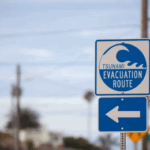Puffy ankles and legs may indicate early heart failure, experts warn. Learn the key signs and when to seek urgent medical help to prevent complications.
Swelling in Ankles May Point to Heart Failure
A new public health warning has highlighted that swollen or puffy ankles—often overlooked—could be one of the most common signs of heart failure, a serious and potentially life-threatening condition.
Why This Matters Now
Health organizations like the British Heart Foundation (BHF) and the NHS are urging Canadians to stay alert to early symptoms, especially as heart failure cases rise with age and lifestyle-related health issues. The condition occurs when the heart becomes too weak or stiff to pump blood effectively, leading to fluid buildup in the body.
What Experts Are Saying
Medical experts explain that the increased pressure in blood vessels due to heart inefficiency forces fluid into surrounding tissues, causing swelling known as oedema. This is especially noticeable in the ankles, feet, and legs, and may worsen as the day progresses.
“It may seem like a minor symptom,” the BHF states, “but ankle swelling can be an early indicator of a failing heart.”
How It Affects Canadians
The warning is particularly relevant in Surrey and across Canada, where sedentary lifestyles, high salt intake, and rising obesity rates contribute to cardiovascular risks. The NHS also notes that puffiness could result from unrelated causes like pregnancy, medication, or prolonged sitting—but in conjunction with other signs, it shouldn’t be ignored.
What Other Symptoms to Watch For
Besides swollen ankles, other common heart failure symptoms include:
- Breathlessness (even at rest or while lying down)
- Persistent fatigue
- Irregular or racing heartbeat
- Unexplained weight gain or loss
- A persistent cough or wheezing, especially at night
- Dizziness or fainting spells
More subtle symptoms may include confusion, bloated abdomen, or appetite loss. The NHS and BHF stress that mental health symptoms like depression and anxiety are also frequent in heart failure patients.
When and Where to Seek Help
Health officials urge residents to consult their GP if they experience persistent or worsening symptoms. In emergency cases—such as sudden breathlessness or severe swelling—individuals should call 911 or visit the nearest emergency department.


























